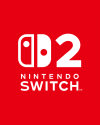PS5 compatibility required for all new PS4 games from July onward

Sony has updated its certification process, requiring all developers to ensure that PlayStation 4 games submitted to them from July 13, 2020 onwards are also compatible with the PlayStation 5. The update was captured due to a new mandatory checkbox that developers must tick.
The definition of compatibility, according to Sony, is source code that runs on a PlayStation 5 without error. The code should also provide the same gameplay experience as it does on a PlayStation 4.
It has been reported that Sony will be contacting developers on an individual basis with information on how to properly test PlayStation 5 compatibility. This process will take a long time, and Sony will be contacting developers based on their project’s planned release date.
In addition, all game patches and remasters for games submitted after the 13th of July must also be compatible with the PlayStation 5. While patches submitted before this date are not required to run on the new hardware, it is strongly recommended that they do to avoid future issues.
In addition, a game must remain compatible with the PlayStation 5 once it has been made so, meaning that developers will need to constantly monitor this aspect of their games from now on.
While games such as The Last of Us Part 2 and Ghost of Tsushima likely won’t be required to run on a PlayStation 5, since their code will have been submitted some weeks ago now, they almost certainly will be compatible.
Given that The Last Of Us released on the PlayStation 4 shortly after it launched, and both of these PlayStation exclusives are releasing so close to the new console, it’s hard to see Sony not pushing to have them on their next-generation offering.
Sony was due to show some of the games coming to PlayStation 5 this year during an online event tomorrow. However, the event has been postponed to enable what Sony believes are more important voices to be heard. They are of course referring to the protests and larger #BlackLivesMatter movement that has gained more and more traction each day since the death of George Floyd, a black man, in police custody. While the situation persists, many companies around the world are taking similar action to Sony, preventing their messages from blocking the airwaves while this movement continues to be so important to hear and understand.


